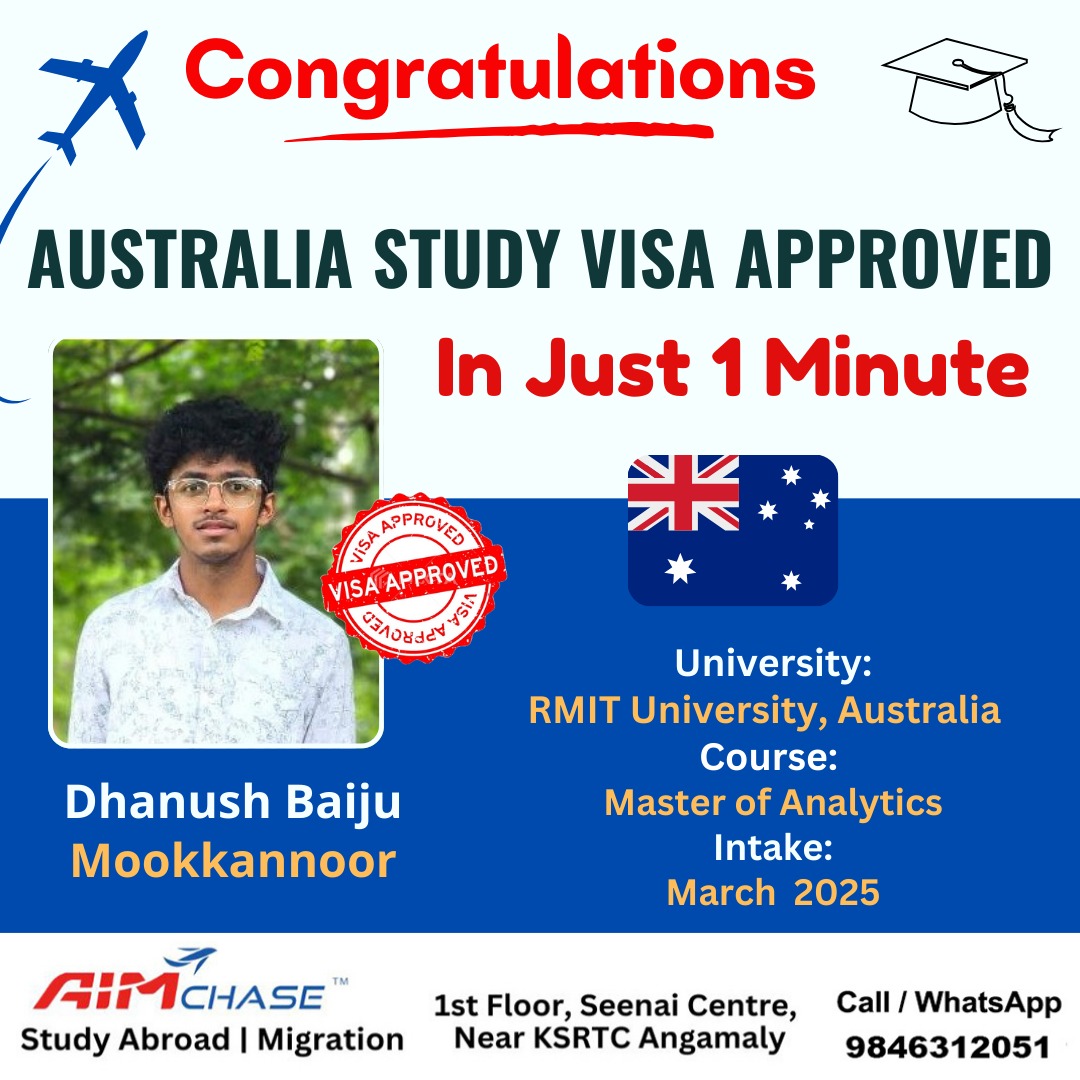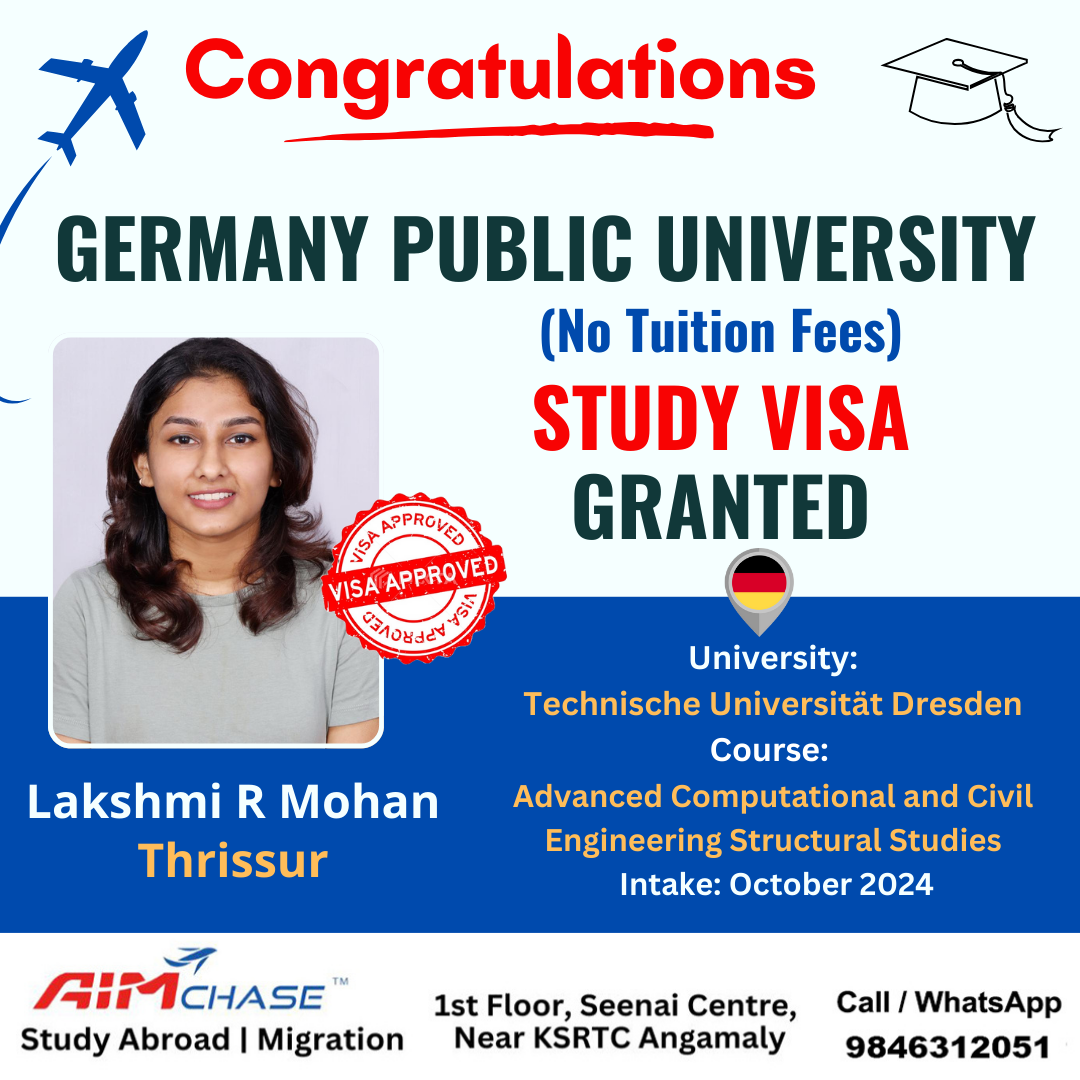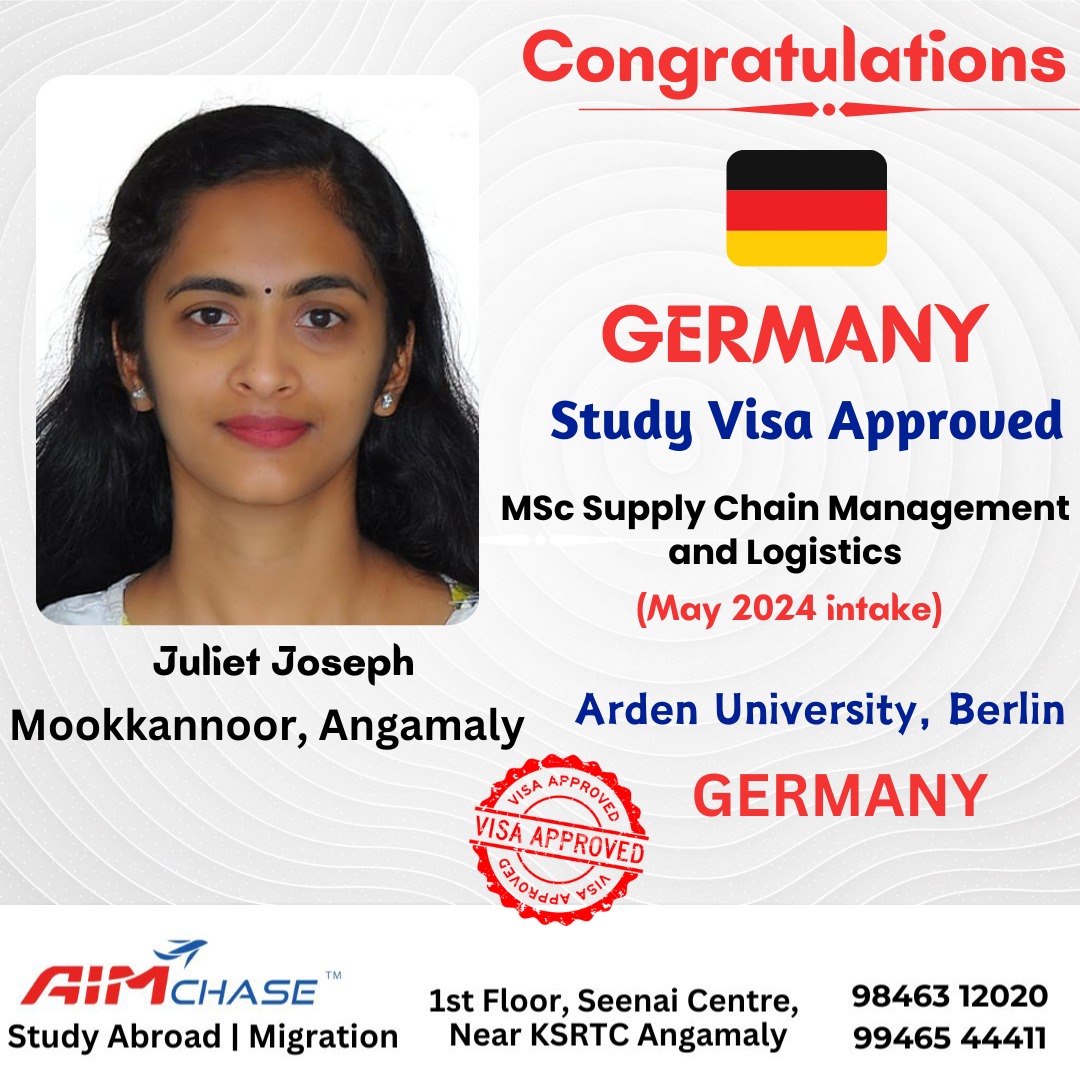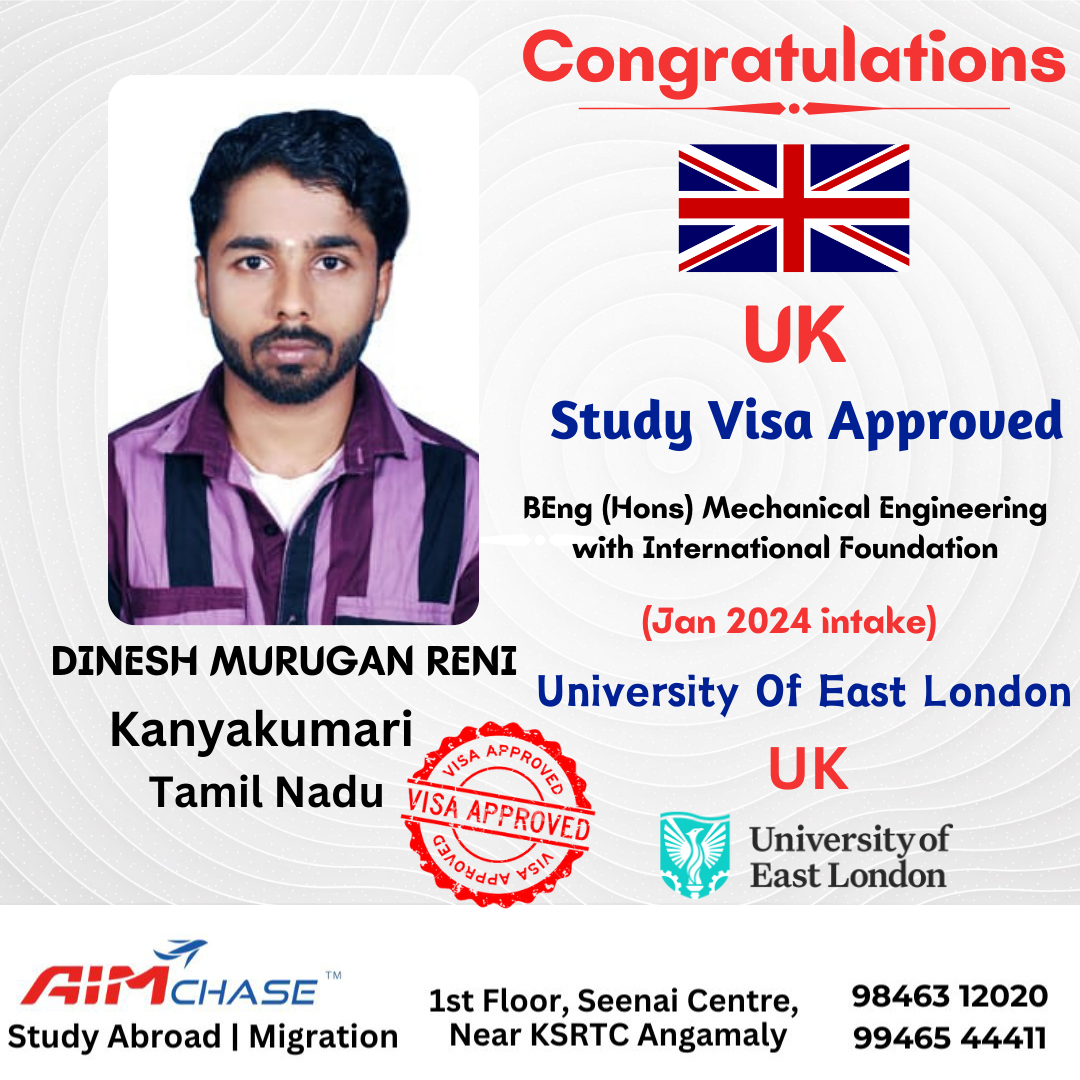Australia student visa can offer several benefits and opportunities to international students. In addition to academic success, a vibrant cultural environment, and a good standard of living, studying in Australia offers international students a singular and enriching experience. Australia's academic reputation, high standard
of living, and diverse cultural experiences are just a few of the factors that draw in international students.
- Academic Excellence
Australia has a world-class education system, with many of its universities continuously ranking among the top in the world. These colleges maintain excellent academic standards and provide cutting-edge programs in a variety of fields.
- High-Quality Education
Australia is home to a number of world-class universities noted for academic achievement and stringent quality requirements. Many Australian universities are highly regarded in worldwide university rankings.
- Diverse Range of Courses
Australian universities provide a vast range of courses and programs, giving students a wide range of academic opportunities. Students can discover programs that meet their interests and career aspirations in the fields of science, engineering, arts, business, and health sciences.
- English Language Environment
Studying in an English-speaking country allows you to immerse yourself in the language. This helps to improve English language ability, which is useful for both academic and professional objectives.
- Global Recognition of Qualifications
Australian university degrees are widely recognized and valued. Graduates discover that their qualifications open doors to opportunities all over the world, boosting their job prospects on the global stage.
- Innovative Teaching Methods
Innovative teaching approaches are frequently used in Australian
institutions, with a focus on practical and project-based learning. This
method prepares pupils for real-world problems and fosters critical thinking.
- Safe and Supportive Environment
For international learners, Australia is seen as a safe haven. The government and educational institutions promote student wellbeing by offering extensive support services such as health care, counseling, and housing aid.
- Post-Study Work Opportunities
The Graduate Route (Post-Study Work Visa) allows international graduates to stay and work in Australia for a set amount of time after finishing their education. This route eases the transfer from education to the workforce.
- Multicultural Society
Australia is known for its multicultural society, in which people from all
backgrounds cohabit together. International students can immerse
themselves in a diverse range of cultures, encouraging cross-cultural
understanding and global perspectives.
- Work Opportunities
International students in Australia can work part-time while studying and full-time during specified breaks. This helps students to obtain vital work experience, supplement their income, and improve their employability.
- Quality of Life
Australia is noted for its high standard of living, which provides a safe and inviting atmosphere. Cities such as Sydney, Melbourne, and Brisbane are vibrant and cosmopolitan, offering a diverse range of urban amenities, cultural experiences, and natural beauty.
Australia has a well-developed and internationally renowned education system that includes primary, secondary, and university education. International students flock to Australia in large numbers. The education system is geared to accommodate students from a variety of cultural backgrounds, and institutions offer assistance to international students as they adjust to their academic and social
environments.
Higher Education:
Universities: There are various famous universities in Australia that offer undergraduate and postgraduate studies.
Qualifications:
- Undergraduate: Bachelor's degrees typically take three to four years to finish.
- Postgraduate: Master's and doctorate degrees are available for advanced specialization and research.
English Language Courses:
International students are drawn to Australia for English language courses such as General English, IELTS preparation, and English for Academic Purposes (EAP).
Australia is a beloved destination for international students because it
provides a wide range of degrees in many fields. Australia's education
system is renowned for its excellent quality and high standards. Among the credentials offered to foreign students in Australia are the following:
- English Language Courses:
- English for Academic Purposes (EAP)
- Intensive English Language Courses
- Higher Education:
- Undergraduate Degrees (Bachelor's degrees)
- Postgraduate Degrees (Master's and Doctoral degrees)
- Graduate Certificates
- Graduate Diplomas
- Vocational Education and Training (VET):
- Certificate I to IV
- Diploma
- Advanced Diploma
- Vocational Graduate Certificate
- Vocational Graduate Diploma
In Australia, it is common for international students to have to take certified English language competency exams to confirm their proficiency in the language. The most often utilized tests are the ones listed below:
- English Language Testing System, or IELTS:
Australia's colleges, universities, and other educational establishments often accept IELTS. The four language skills it assesses are speaking, writing, reading, and listening.
- Test of English as a Foreign Language, or TOEFL:
The TOEFL is another widely accepted exam in Australia. It is offered in
both paper-based and internet-based (iBT) formats and evaluates English competency at the university level.
- Pearson Test of English Academic (PTE Academic):
A number of Australian universities have acknowledged PTE Academic, which is gaining popularity. It uses computer-based exercises to assess reading, writing, speaking, and listening comprehension.
- Exams for Cambridge English:
Certain institutions may also accept tests in Cambridge English, such as the Cambridge Certificate of Proficiency in English (CPE) and the Cambridge Certificate of Advanced English (CAE).
Studying the English language proficiency requirements of the school and program to which they are applying is essential for overseas students. Every institution may have different minimum score criteria for these exams. Furthermore, the necessary scores may vary based on the program and the level of study (undergraduate or postgraduate).
The cost of education in Australia varies according to the degree of study, the type of institution, and the course of study chosen. Here is a summary of the expected costs for various degrees of education:
- Undergraduate and Postgraduate Fee:
Undergraduate tuition expenses at Australian universities typically range from AUD 20,000 to AUD 45,000 per year. Postgraduate tuition expenses range from AUD 20,000 to AUD 50,000 or more each year, depending on the program and school.
- English Language Courses:
English language training can cost between AUD 300 and AUD 600 per week. It should be noted that these figures are estimates and may vary depending on factors such as the chosen institution, region, and course of study. Furthermore, living expenses in Australia might vary greatly depending on the city or location. International students are typically needed to produce proof of money to cover living expenses, which are currently set at approximately AUD 21,041 per year.
The two main intakes for the majority of Australian universities and institutes are in February/March and July. These are the main times when applications are accepted for graduate and undergraduate programs. Here's a brief summary:
- Intake for February/March:
With classes starting in late February or early March and ending in June, this is the year's first and most significant academic semester. Many programs, especially those at the undergraduate level, accept new students at this time.
- July Intake:
July marks the start of the second semester, which lasts until November. For a number of undergraduate and graduate programs, this is another busy time. These are the most common intakes for overseas students to start their studies in Australia, and they match with the Australian academic calendar. However, keep
in mind that some colleges could provide several intakes or extra terms during the year. These could be quarters, trimesters, or focused sessions, enabling students to start their studies at various times. The availability of certain programs and admissions vary by institution, although the two main intake dates are February/March and July.
Australia is home to a number of world-class institutions and colleges. The following is a list of a number of Australia's top universities based on global rankings, academic reputation, and research output.
- University of Melbourne
- Australian National University (ANU)
- University of Sydney
- University of Queensland (UQ)
- University of New South Wales (UNSW Sydney)
- Monash University
- University of Western Australia (UWA)
- University of Adelaide
- University of Western Sydney (UWS)
- Queensland University of Technology (QUT)
Individual interests, career aspirations, and industry need can all influence the popularity and "top" courses in Australia. Certain courses and disciplines, on the other hand, continuously attract students due to their reputation, educational quality,and employment opportunities.
- Engineering
- Computer Science and Information Technology
- Health Sciences and Medicine
- Business and Management
- Accounting and Finance
- Environmental Science and Sustainability:
- Education
- Architecture and Urban Planning
- Psychology and Counseling
- Creative Arts and Design
- Law and Legal Studies
- Agriculture and Veterinary Science
Work Limit:
During the academic semester, most student visa holders are permitted to work up to 40 hours each fortnight. Some postgraduate research students, on the other hand, may have limitless work permissions.
Unrestricted Work during Course Breaks:
Australia student visa often allowed working unrestricted hours during designated course breaks, such as semester holidays or the official end of the academic program.
International students, regardless of subject of study, who have earned a higher education degree from an Australian education provider, are eligible to apply to this stream.
Depending on the degree of qualification attained, the post-study work visa had different durations. Holders of bachelor's degrees, for instance, might be eligible for a two-year visa; holders of master's degrees through coursework and research, however, might be awarded a two- to three-year visa, and holders of doctoral degrees, a five-year visa.
 Australia
Australia
























